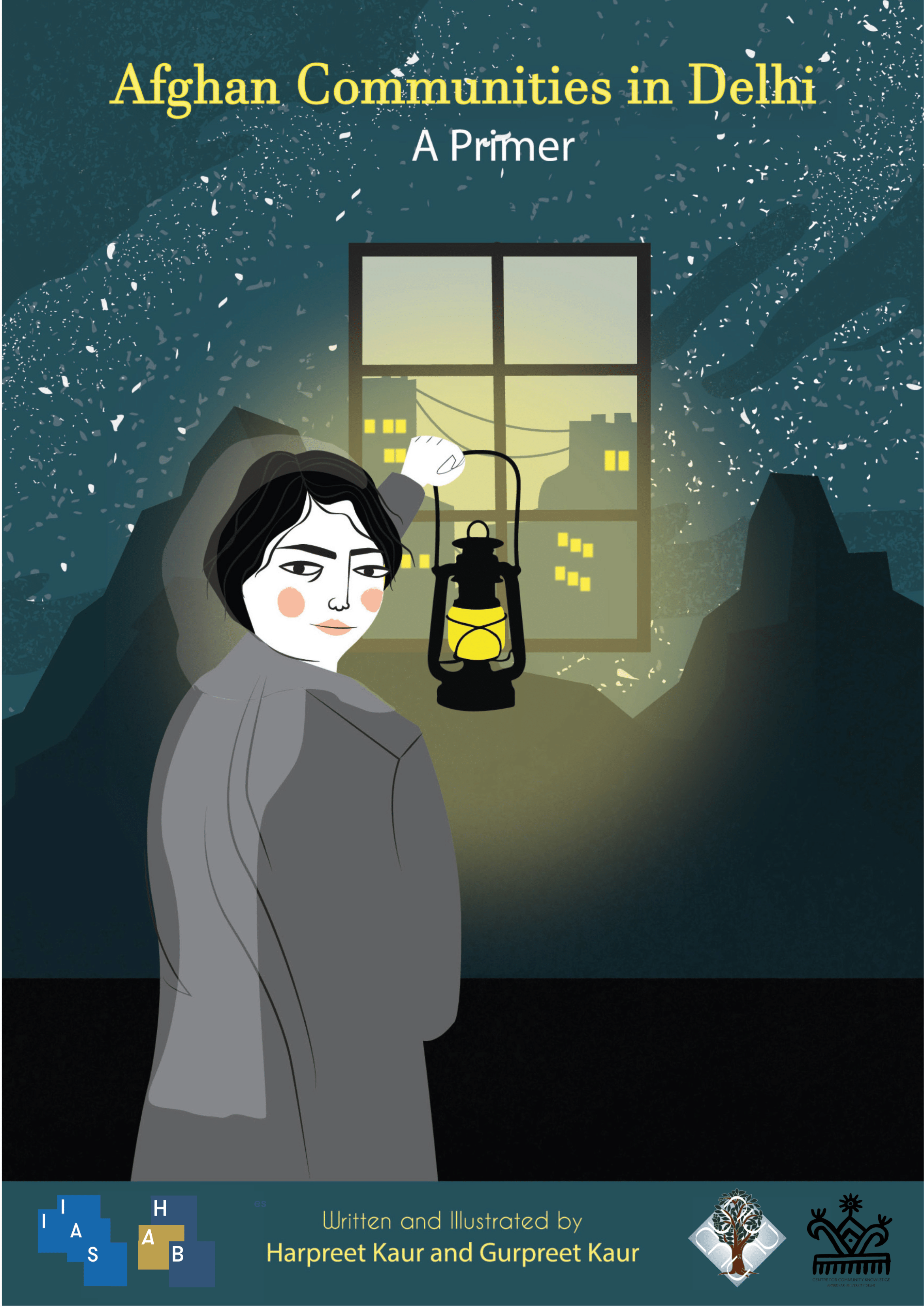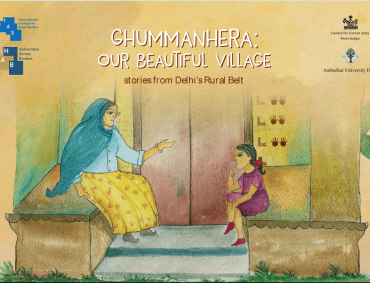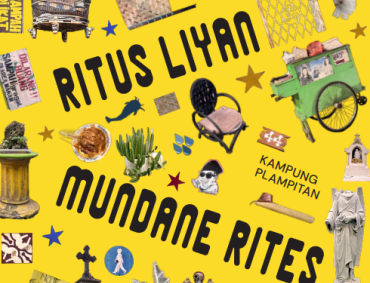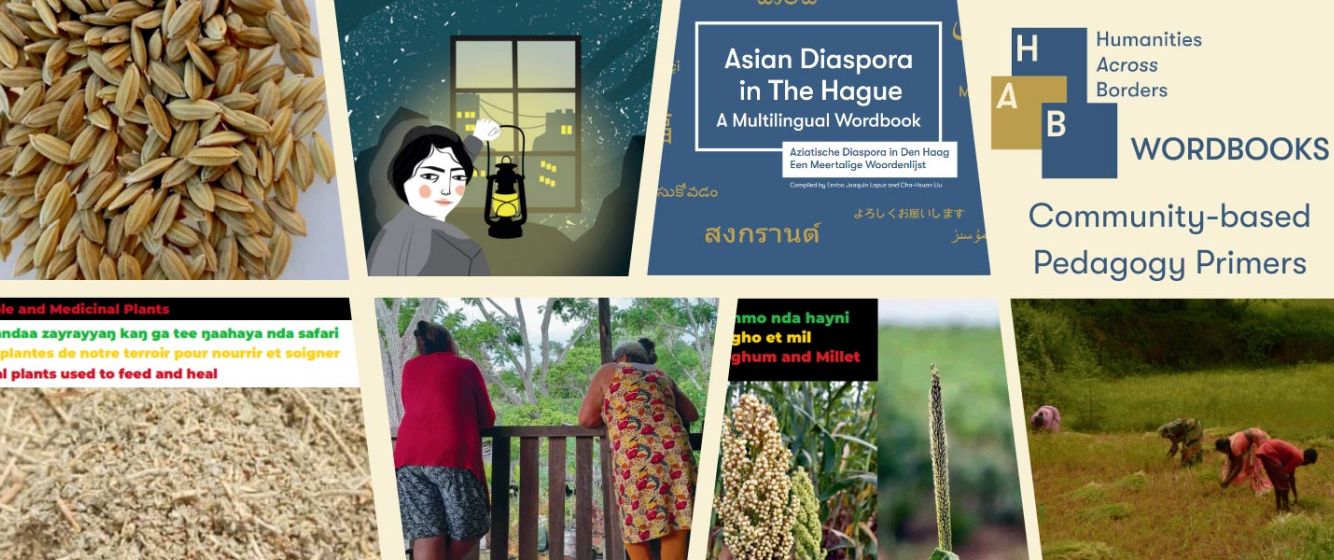
Humanities Across Borders, 2024
Introducing the Humanities Across Borders Wordbook Series
In 2023, HAB launched the Wordbook Series project, a selection of words extracted from extensive linguistic interactions between HAB researchers around the globe and their local collaborators.
Wordbooks inhabit the in-between world of words as they are spoken, and make visible the routines and invisible practices of communication that are part of everyday speech exchange. Each publication is edited and published in the native country of the community it represents.
Please find below a list of the currently available wordbooks along with a short description, as well as a hyperlink to their resource page on the HAB website. New wordbook compilations will be added to this page as they are released. Full PDF copies of the wordbooks are available to download for free for use in pedagogical and narrative research use.
Afghan Communities in Delhi, co-published by the Centre for Community Knowledge (CCK) in India and IIAS, shares words in the Dari dialect and English that emerged from conversations with Afghans in Delhi. Through the fictionalised account of a young woman named Maryam, Afghan-Sikh researchers Harpreet and Gurpreet Kaur draw upon the stories of the Afghan diaspora's everyday lives, many of whom fled Afghanistan to restart their lives from scratch, educating themelves in the hopes of moving to the United States or Canada, where many diasporic Afghans have settled.
The descriptions that accompany each word tell of journeys, challenges, fears, and hopes to give the reader a sense of what it means to 'be an Afghan' in the city. Also acting as a kind of 'memory book', readers are able to know the diaspora through their common anecdotes and experiences in the way it was narrated to the researchers which with the accompanying illustrations, give an insight into the unique details that make the life of the community.
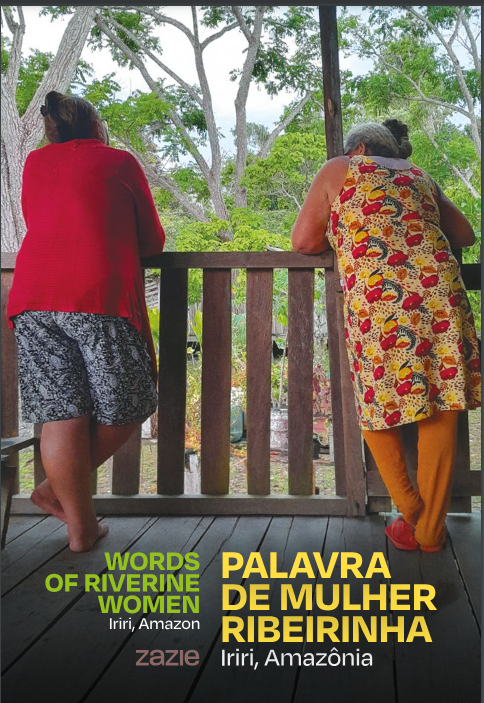
Words of Riverine Women (Palavra de Mulher Ribeirinha), published by Zazie Editions of Brazil in collaboration with the IIAS, introduces words and expressions used in the daily lives of the women community residing in Iriri, in the Amazon region. The words highlighted by the Riverine women in this glossary, compiled by researcher Satya Maia Patchineelam and written in Portuguese and English, embody the essence of their daily experiences and emotional connections formed through conversations within their families and the environment that surrounds them.
This volume is a collaborative effort between HAB and the River Cities Network (RCN) of IIAS. The RCN is dedicated to researching and promoting knowledge about rivers and water bodies, viewing them as socio-natural phenomena – natural lifelines shaped over centuries by human intervention, both constructive and destructive. To restore the health of these rivers, a multidisciplinary approach is necessary, involving active engagement from the riverine communities.
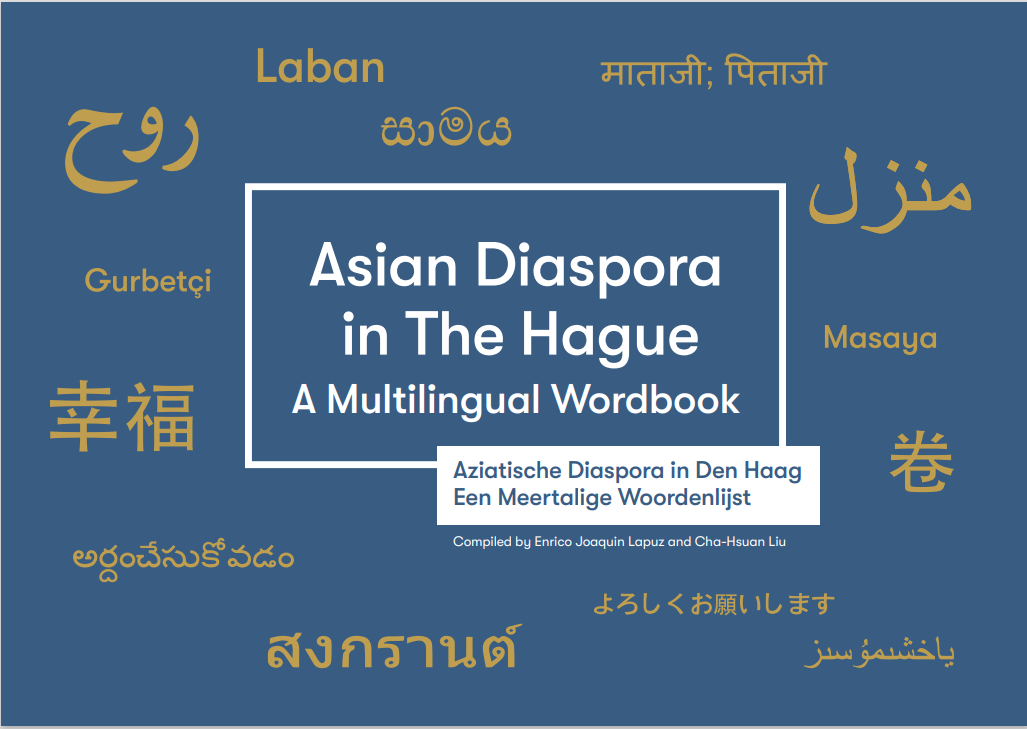
Asian Diaspora in The Hague (Aziatische Diaspora in Den Haag) is a brief encounter into the world of those who have crossed many physical and mental borders in order to call The Hague in the Netherlands their home. It is a collaborative effort between HAB and Leiden University College (LUC), The Hague. A quick search for the words toko (‘shop’ in Bahasa Indonesia) and roti (‘flat bread’ in Hindi) on a Google map of the city will reveal the neighbourhoods or locations of family-owned shops and restaurants belonging to Asian immigrants settled here. Both these words have entered into everyday Dutch and commonly refer to non-Dutch, Asian food, understood broadly.
The 25 word stories presented, compiled by HAB researchers Enrico Joaquin Lapuz and Cha-Hsuan Liu, are a window into the world of some residents of The Hague who wanted to reveal their journey, through personal, even emotional utterances, inspired by this exercise in linguistic comparison. Each word disclosed contains an English and Dutch translation to represent the multilingual and international nature of the lives of the diaspora, and conveys a sense of attachment to place, one that somehow travels with and is carried along, held by individuals as they seek a better life, or struggle to be united with their loved ones.
As multi-lingual compilations, these wordbooks are examples of how spaces of dialogue, when nurtured one word at a time, may be transformed into vehicles of shared meaning between narrative researchers and their local collaborators. Each linguistic utterance chosen is a world in itself, revealing stories word by word, helping break down the barriers of inter-personal and inter-cultural exchange, and shed light on the life-world of the speakers themselves.
By sharing these with others, we hope these wordbooks reach a broader audience, offering insights into ways of relating with one another and foster appreciation and understanding of these diverse cultures and inspiring other research teams to negotiate alongside their regional collaborators the familiar and different in an increasingly globalized and multilingual world.

